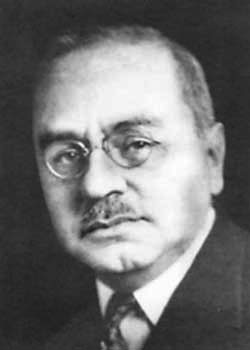Who was Alfred Adler?
About Adlerian TheoryThyra Boldes once wrote of Adler that he was real, whether he was joking or serious, whether in private discussion or lectures, his real personality always seemed to say, Life is holy. Have reverence for life. Everything, which happens, is important. In his youth, Adler was a sickly child, which caused him embarrassment and pain. These early experiences with illnesses and accidents probably account for his theory of organ inferiority and were the foundation for his theories on inferiority feelings. According to Adler, each individual has a weak area in his or her body--organ inferiority, which tends to be the area where illness occurs, such as the stomach, head, heart, back, lungs, etc. Adler said that to some degree every emotion finds expression in the body. From his understanding of organ inferiority, Adler began to see each individual as having a feeling of inferiority. Adler wrote, To be a human being means to feel oneself inferior. The child comes into the world as a helpless little creature surrounded by powerful adults. A child is motivated by feelings of inferiority to strive for greater things. Those feelings of inferiority activate a person to strive upward so that normal feelings of inferiority impel the human being to solve his or her problems successfully, whereas the inferiority complex impedes or prevents one from doing so. The healthy individual will strive to overcome his or her inferiority through involvement with society. One is concerned about the welfare of others as well as oneself and develops good feelings of self-worth and self-assurance. On the other hand, some are more concerned with selfishness than with social interest. They may express this selfishness in a need to dominate, to refuse to cooperate, wanting to take and not to give. From these unhealthy responses, the person develops an inferiority complex or a superiority complex. A superiority complex is a cover up for an inferiority complex. They are different sides of the same coin. The person with the superiority complex has hidden doubts about his or her abilities. Adler developed a theory of personality based upon:
From "Durbin, Paul G.. "Introduction to Alfred Adler.(President's Corner)(Biography)." Subconsciously Speaking. Infinity Institute International, Inc. 2004. Retrieved December 22, 2008 from Encyclopedia.com:http://www.encyclopedia.com/doc/1G1-128445468.html Click here to view a short video of Alfred Adler, June 17, 1929.
|

